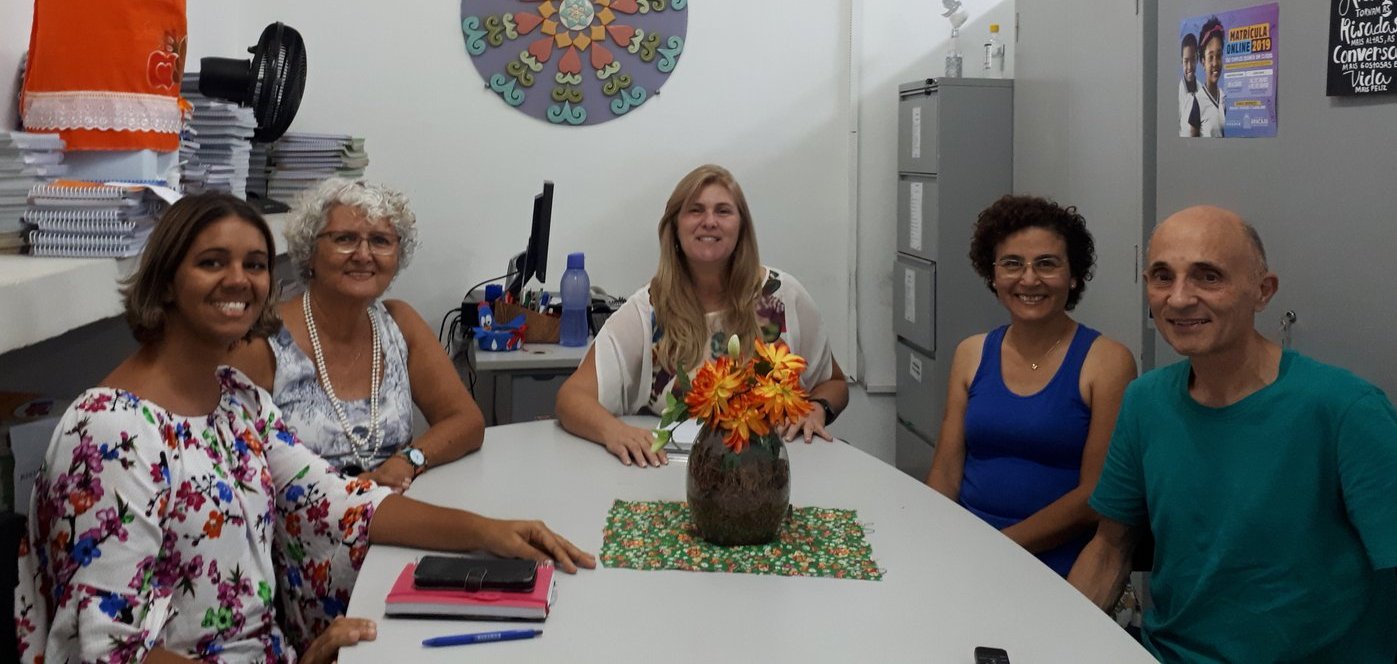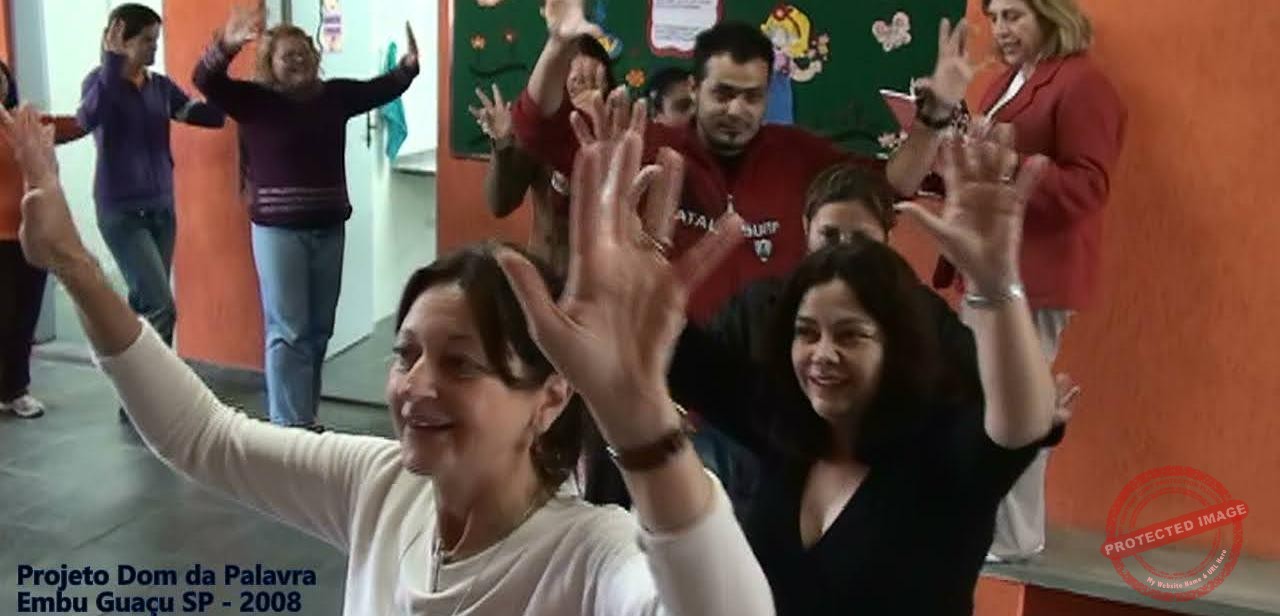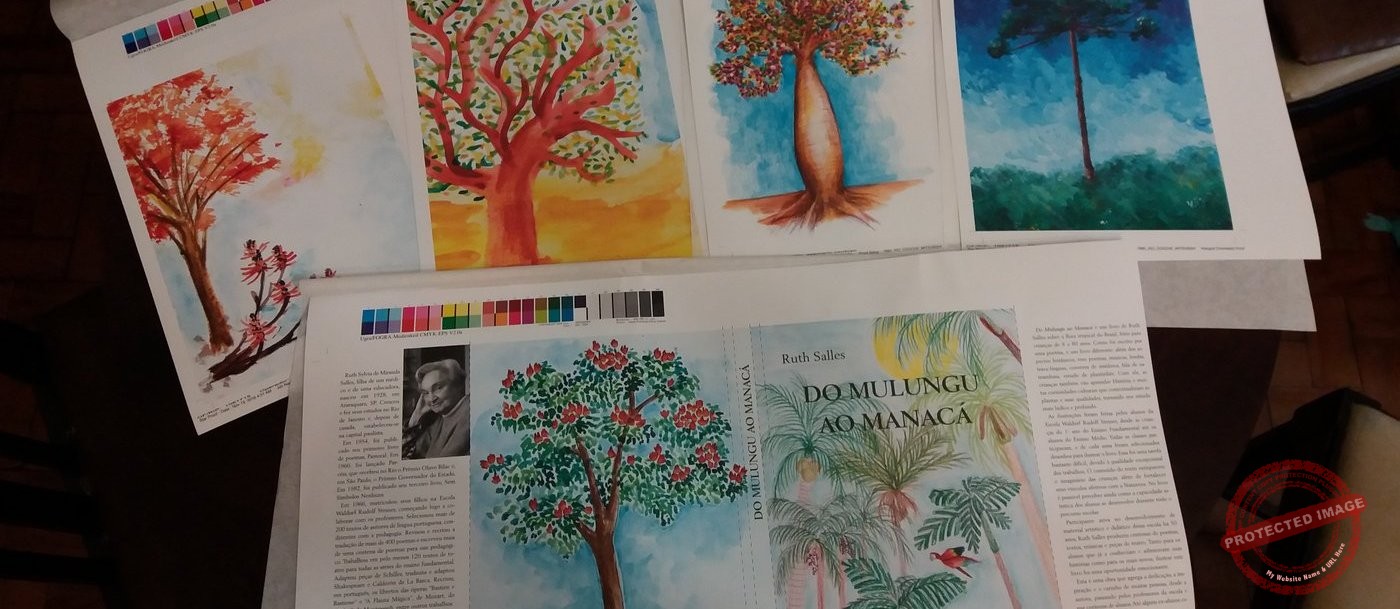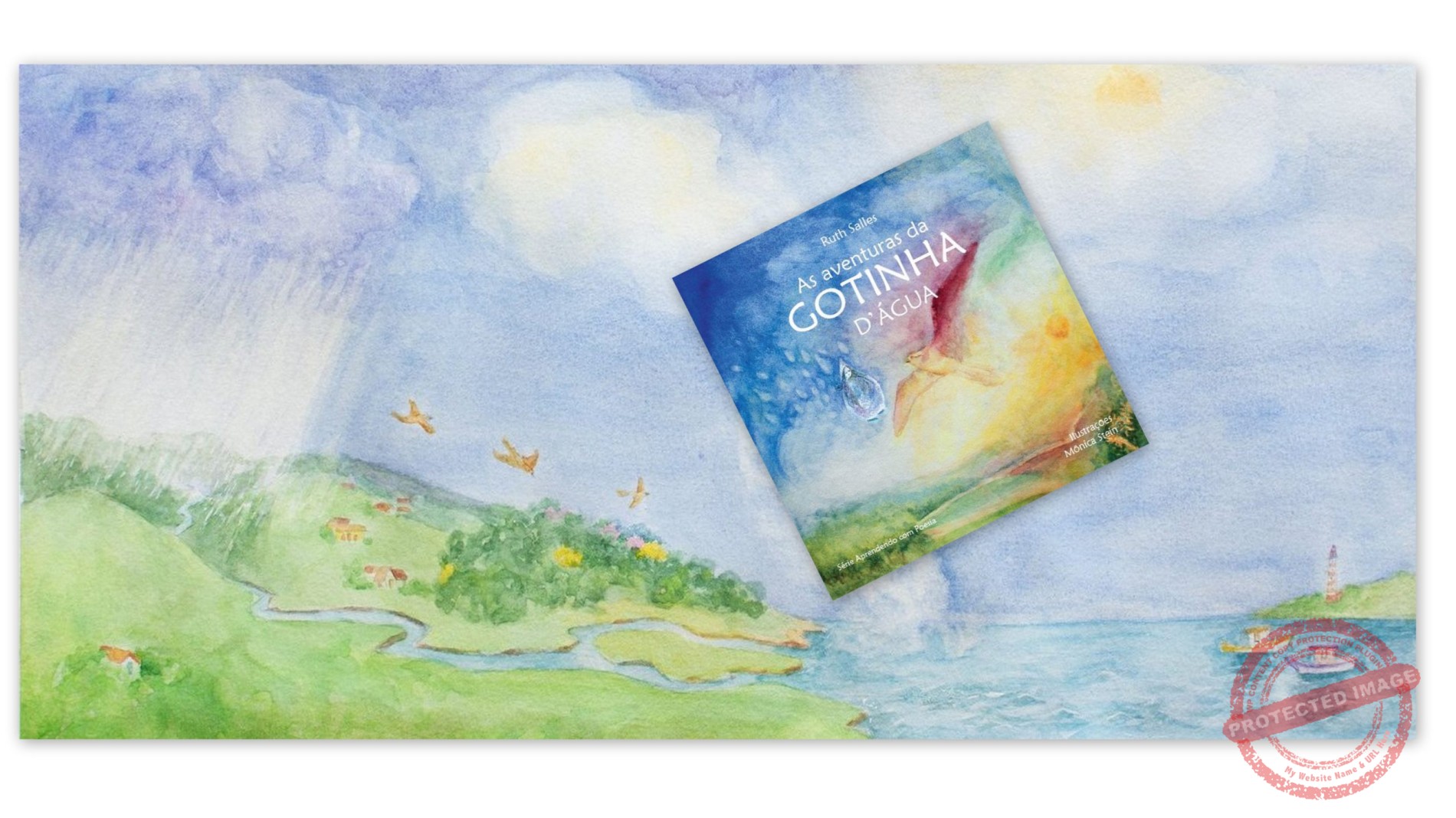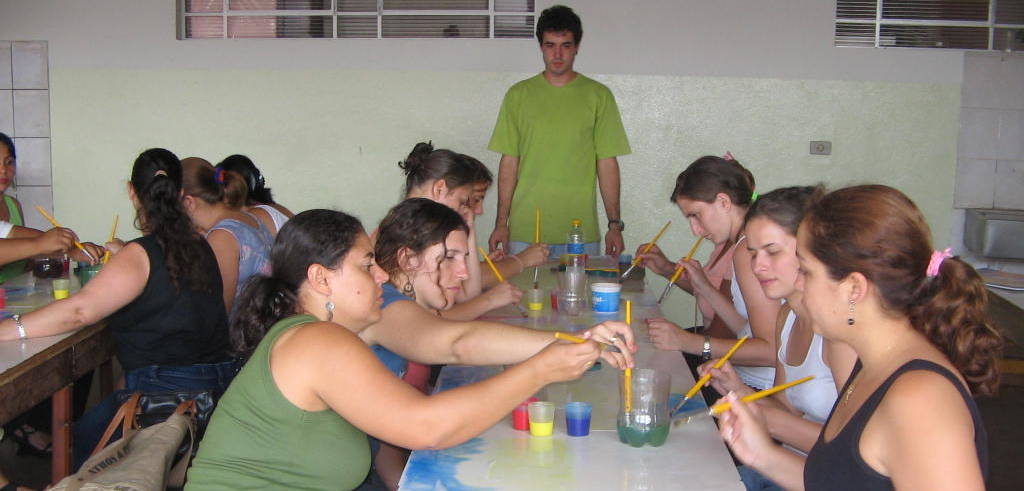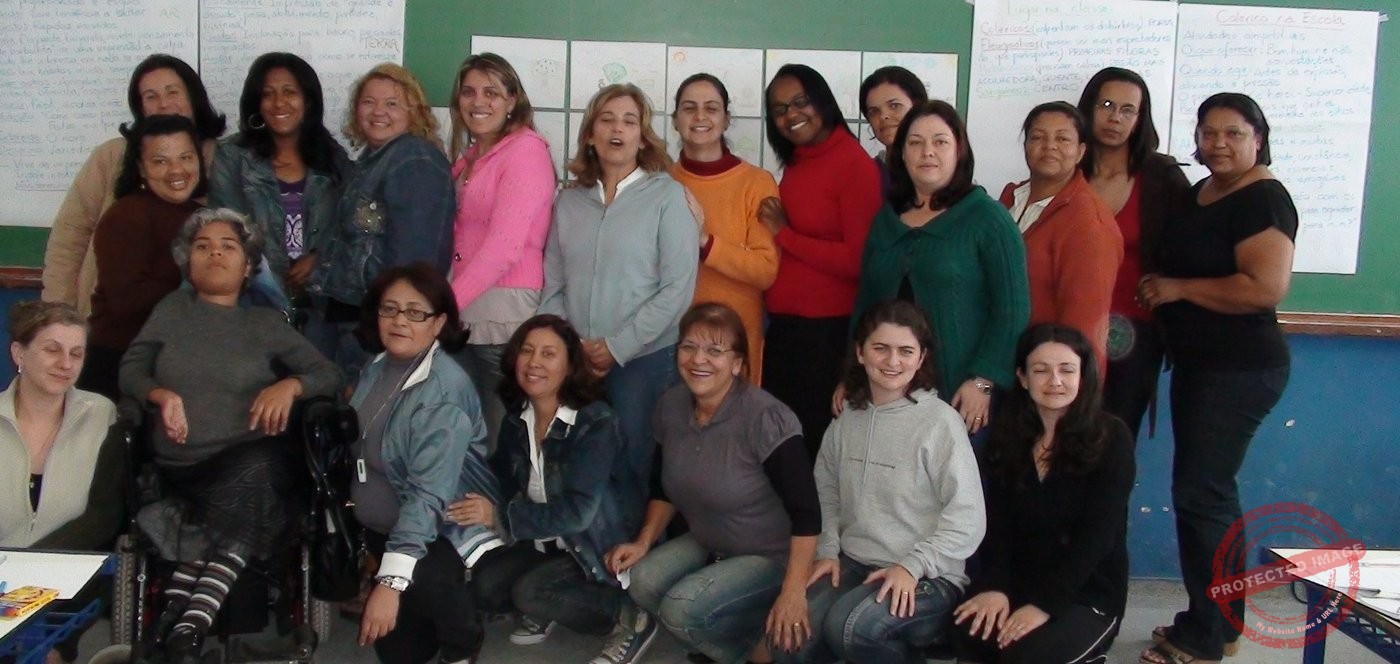[print-me target="body"]
Collection in five volumes – by Ruth Salles
Theater, used as a pedagogical instrument, is a powerful tool for education. It allows teaching in a playful and pleasant way, and helps the child to learn through the experience of the contents. Although its use is considered of great importance, even according to the Brazilian Curricular Parameters, there has always been a lack of appropriate texts and guidelines for teachers for their didactic application in the classroom. This work came to fill this gap.
The collection TEATRO NA ESCOLA, with 5 volumes, brings an unprecedented collection composed of 66 plays by the poet Ruth Salles, which were created or adapted especially to be represented by elementary school classes, meeting the pedagogical objectives of their teachers. Most of the pieces have songs, whose 98 scores are included in the collection. All have already been staged at Escola Waldorf Rudolf Steiner, in São Paulo, where theater is used as a pedagogical tool in elementary school.
Its first edition was awarded by the São Paulo Department of Culture in 2007.
Synopsis
Theater at School 1 features 8 plays based on fairy tales, which are suggested for children aged 6 to 7 years, and 10 plays based on legends and themes of nature, which are suggested for children aged 8 years. The world of a child at this age is a constant theater, a continuous make-believe. The role of the educator is, in essence, to organize this world and configure it in a healthy way to explore all its possibilities. One of the ways is through theater, as we understand it in this context. Most of the pieces contain music, whose scores accompany the text. The book also provides pedagogical guidelines on how to use theater as a pedagogical tool according to the age of the students.
Teatro na Escola 2 brings 11 plays based on themes that represent the role of human beings in the world, based both on Christian stories, on the work of man and on the Portuguese language, which are suggested for 9-year-old children. They bring images that translate in depth the moment this child is going through, and show that man cannot be passive on Earth, and that, with his work, he can act in the world and guarantee his survival. Most of the pieces contain music, whose scores accompany the text. The book also provides pedagogical guidelines on how to use theater as a pedagogical tool according to the age of the students.
Teatro na Escola 3 brings 13 plays based on episodes from the history of Brazil, in Portuguese and on themes from Norse mythology, which are suggested for children aged 10 years. Through these stories, children can imaginatively penetrate some secrets of human existence. These are vigorous images that healthily “shake” children and speak to them of honor, courage, struggle and other fundamental values. The stories, touching your heart, translate the shift in consciousness they are going through. Most of the pieces contain music, whose scores accompany the text. The book also provides pedagogical guidelines on how to use theater as a pedagogical tool according to the age of the students.
Teatro na Escola 4 features 15 plays based on Brazilian themes and legends, and on themes from Indian, Greek and Egyptian mythologies, which are suggested for 11-year-olds. At this age, the child already has the perception of the regional diversity of Brazil. Through this approach, there is a way to investigate natural and sociocultural differences. Students can be led into the environment and atmosphere of ancient cultures, and then they realize that the men of that time did not think, feel and act as we do. Most of the pieces contain music, whose scores accompany the text. The book also provides pedagogical guidelines on how to use theater as a pedagogical tool according to the age of the students.
Teatro na Escola 5 brings 9 plays that bring deeper human experiences, suggested for this phase that young teenagers from 12 to 13 years old are going through. They allow a greater perception of the life stories, and the feelings of those who lived the events characterized. The study through a biography is not restricted to the simple narration of someone's life, but to the construction of a broad image of this being, so that he lives within the young and the world is seen from his vision. Most of the pieces contain music, whose scores accompany the text. The book also provides pedagogical guidelines on how to use theater as a pedagogical tool according to the age of the students.
To purchase the books visit our STORE.
****


